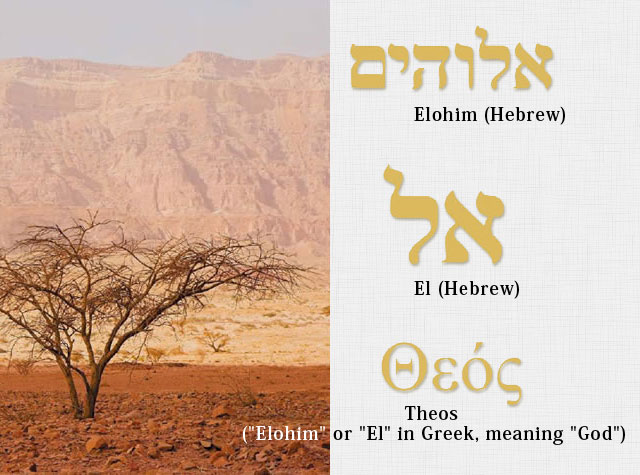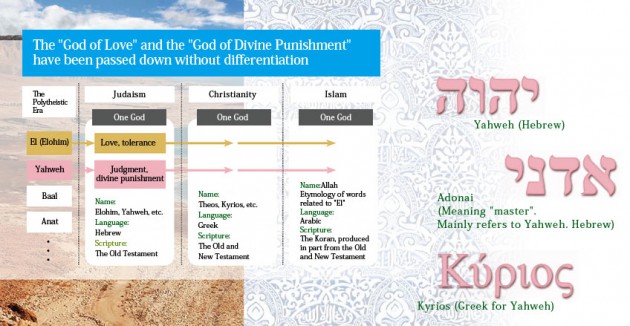Christianity vs. Islam (Part 7)
What Is the Relationship Between the Christian God and Allah?
It is well known that prior to the founding of the Yahweh monotheistic religion (Judaism), polytheism also flourished in ancient Israel. This is written in the Old Testament and supported by a plethora of archaeological research.
In other words, at some stage in the history of ancient Israel, a switch from polytheism to monotheism occurred.
Much speculation exists about the process of this switch. For example, biblical scholars G. Fowler and W. H. Schmidt theorize that the formerly embraced, numerous gods were merged and formed into one God. Other scholars such as M. Smith speculate that the Yahweh religious movement excluded the other Gods.
Were Two Separate Gods Merged Into One?
The sacred book of Judaism, the Old Testament, doubtlessly preaches a rigid monotheism. Strangely enough, however, its one and only God has various names. “Elohim” and “Yahweh” are notably typical.
In fact, literary criticism of the biblical studies of the Old Testament, which has developed since the 19th century, has revealed that the places, which mainly called God “Elohim” and those that called him “Yahweh”, were originally from separate source materials.
It is currently understood that there are often different ways of referring to the one God. The general interpretation is that “Elohim” is a common noun meaning “God”, and “Yahweh” is a proper noun for that God.
However, when you consider that ancient Israel was a polytheistic world, it is only natural to surmise that Elohim and Yahweh, who were embraced as separate gods when the original materials were created, were merged into one by later editors.
Elohim, the God of Love, and Yahweh, the God of Divine Punishment
The fact that the God in material on Elohim and that on Yahweh have completely dissimilar qualities supports the view that Elohim and Yahweh were initially separate Gods.
According to biblical scholar Shinya Nomoto, Yahweh has the mannerisms of a God that curses and destroys humans as well as feels hostile towards other races. For example, Adam and Eve being cursed by God is Yahweh material (Genesis 3).
Elohim, on the other hand, is a God that has a delicate, ethical sense. Elohim is depicted as a God that reaches out to foreigners and other religions, and is not obsessed with land. Elohim gets Abraham to reconcile with outsiders, and he also heals them (Genesis 20). This is consistent with Elohim being embraced beyond race and nation.
The word “El” frequently appears in the Old Testament as a variation of Elohim. This El is the supreme God widely embraced in the polytheistic world of the Ancient Orient, and is also common to languages including Syriac, Arabic, Akkadian, and Phoenician.
“El” being used as a common noun to mean “God” is confusing, but nevertheless, the specific supreme God called El in ancient times is known because Yahweh, believed to be a god native to Israel, is embraced as a different God.
Thus, the lineage of supreme God Elohim (El), which the ancient races espoused, and Yahweh, the god indigenous to Israel, remain mixed in Judaism.
There are any number of incredulous episodes, such as God ordering the massacre of other races and the purge of idolaters, which appear in the Old Testament. These do not seem to be the orders of the one God, but if you think of them as the work of an ethnic god that inflicts divine punishment and is different from the supreme God, then they may be somewhat easier to understand.




















